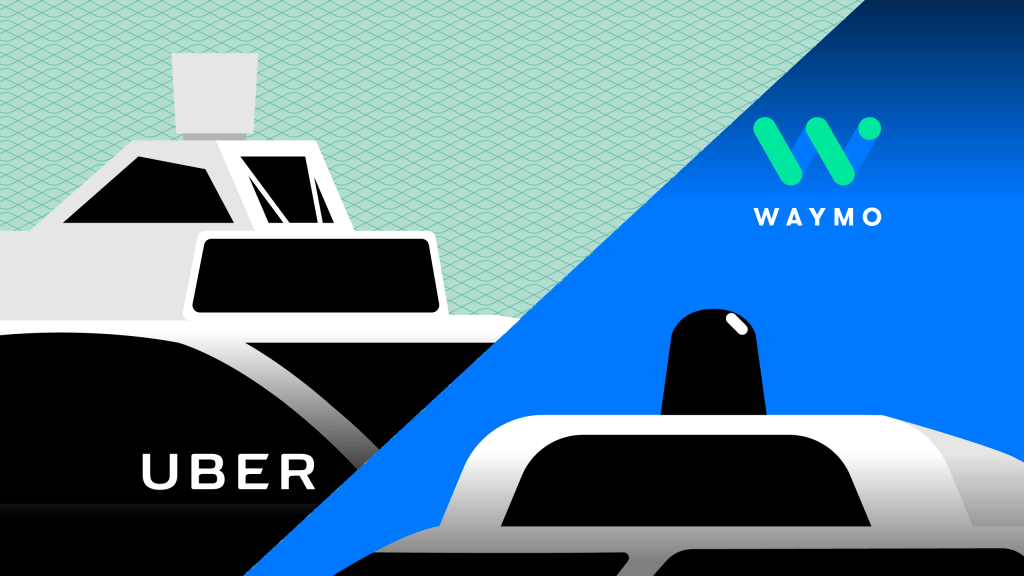A judge has ruled in the matter of a preliminary injunction related to Uber’s use of autonomous tech, finding that Google employee and Otto founder Anthony Levandowski can no longer work on any projects that involve LiDAR technology. Uber, however, can continue its autonomous driving development work in general, and had already voluntarily removed Levandowski from his role at the head of the Uber Advanced Technologies Group (ATG) and taken him off all LiDAR-related projects, but the judge’s legal ruling is obviously a stronger measure than just a voluntary distancing.
Uber faced a preliminary injunction ordered by Judge William Alsup in the ongoing legal saga between the two companies. Waymo alleges that Uber exec and Otto co-founder Anthony Levandowski downloaded tens of thousands of confidential documents related to LiDAR design from Waymo before quitting the company, and used those documents to build self-driving tech at Otto and Uber.
As mentioned, in a last-ditch (and mostly successful) effort to prevent the injunction, Uber announced that Levandowski had been removed as the lead of its autonomous vehicle unit and would no longer supervise or participate in the development of LiDAR. Levandowski will still have a role at Uber, however.
Judge Alsup ruled that information gleaned from Waymo’s work “leaked into” Uber’s own LiDAR tech development, regardless of whether any documents were actually found on Uber computers and devices.
Uber has argued that Levandowski had little to do with LiDAR development at Uber and that its designs were independently developed without any reliance on Waymo’s technology. Uber has said its current LiDAR system, codenamed Fuji, is unique because it uses a multi-lens design (as opposed to Waymo’s Grizzly Bear 3, or GrB3, which uses a single lens). Waymo has instead highlighted similarities between its circuit boards and Uber’s.
Levandowski has consistently invoked his Fifth Amendment rights against self-incrimination throughout the case and Waymo has filed an arbitration proceeding against him, alleging he used confidential salary data to poach Waymo employees and bring them to Uber. Judge Alsup denied Uber’s request to confine Waymo’s trade secret complaints to arbitration as well, and referred the case to the U.S. Attorney for a possible criminal investigation.
Since Waymo requested the preliminary injunction on March 10, Judge Alsup issued repeated warnings that Uber was likely on track to find itself on the receiving end of an injunction. Waymo sought to bar Uber’s use of the LiDAR technology it created entirely — technology it claims Levandowski used to help jumpstart Uber’s stagnant autonomous driving program.
The ruling also states that Waymo can “inspect any and all aspects of defendants’ ongoing work involving LiDAR – including, without limitation, schematics, work orders, source code, notes and emails – whether or not said work resulted in any prototype or device” which sounds like pretty broad license.
The self-driving program at Uber began following its hiring of a significant percentage of Carnegie Mellon University’s autonomous vehicle research team in 2015, but reports suggest that the acquisition of Otto last August helped kickstart the company’s progress considerably. Levandowski, Otto’s CEO, was put in charge of Uber’s overall self-driving effort following the acquisition.
Uber provided the following statement to TechCrunch via a spokesperson:
We are pleased with the court’s ruling that Uber can continue building and utilizing all of its self-driving technology, including our innovation around LiDAR. We look forward to moving toward trial and continuing to demonstrate that our technology has been built independently from the ground up.
Waymo offered the following via its spokesperson:
Competition should be fueled by innovation in the labs and on the roads, not through unlawful actions. We welcome the order to prohibit Uber’s use of stolen documents containing trade secrets developed by Waymo through years of research, and to formally bar Mr Levandowski from working on the technology. The court has also granted Waymo expedited discovery and we will use this to further protect our work and hold Uber fully responsible for its misconduct.































Comment